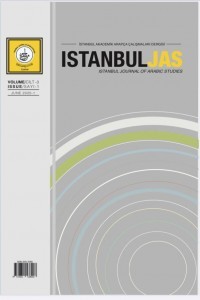Çinli Öğrencilerin Arapça Ses Birimlerini Ayırt Etmeleri: Dinleme Zorlukları ve Kelime Tanıma Hataları
Bu çalışmada, Çinli öğrencilerin perspektifinden Arapça dinleme kabiliyetinin zorlukları ve bu zorlukların üstesinden gelebilmek için öğrencilerin Çin’deki üniversitelerinde ve Cezayir’de uyguladıkları çözümler ortaya konulmaktadır. Araştırmanın örneklemini, dokuz Çin üniversitesinde Arapça eğitimi alan ve öğrenimleri sırasında seviyelerini yükseltmek için 2019-2020 akademik yılında University of Algiers 2’ye bağlı Yoğunlaştırılmış Dil Eğitim Merkezi’ne gelen yirmi üç öğrenci oluşturmaktadır. Pratik yönüyle çalışma, doğrudan çalışma yönteminde öğrencilerin bir dizi sınıfta çeşitli kayıtları dinlerken yazdıkları kelimelerde yer alan en önemli fonolojik hataları izlemeyi amaçlamaktadır. Daha sonra ise bu uygulama Corona salgını nedeniyle çevrimiçi bir platform olan DingTalk aracılığıyla gerçekleştirilmiştir. Çalışma, öğrencilerin ses kayıtlarında yer alan kelimelerin çoğunu tanıyamadıklarını göstermektedir. Dinleme hatalarının kayıtlardaki doğru ifadelerle karşılaştırılması neticesinde kelimeleri tanıyamama derecelerinin şu şekillerde tezahür ettiği gözlemlenmiştir: bir veya daha fazla sesi duyamama, bir veya daha fazla sesi duyma yanılsaması, bir sesin yerine başka bir sesi duyma yanılsaması, birtakım kelimelerin parçalarından oluşan bir kelime duyma yanılsaması, kayıtlarda bahsedilenlerle uyuşması mümkün olmayan rastgele seslerin karışımından oluşmuş kelimeler duyma yanılsaması.
Anahtar Kelimeler:
arapça dinleme becerisi, dinleme zorlukları, işitilebilir kelimeler, arapça ses birimlerinin tanınması, DingTalk platformu, Çinli öğrenciler
The Distinction of the Arabic Phonemes by Chinese Students: Listening Difficulties and Word Recognition Error
This study presents the difficulties of listening in Arabic from the perspective of Chinese students and the solutions that they apply to solve these difficulties at their universities and in Algeria. The research sample consists of twenty-three students who studied Arabic in nine Chinese universities before coming to the Intensive Language Teaching Center at the University of Algiers 2 to improve their levels during the academic year 2019-2020. In the practical aspect, the study aims to monitor the most important phonological errors contained in the words the students wrote while listening to various recordings in a number of classes in the direct study method and then through the online platform DingTalk during the Corona pandemic. The study shows that students could not recognize most of the words contained in the audio recordings. By contrasting the errors of correct listening in the recordings, it appears that the degrees of inability to recognize words vary between: not hearing one or more sounds; the imagination of hearing one or more sounds; the illusion of hearing a sound alternative to another; and the delusion of hearing a word composed of parts of words; in addition to the delusion of hearing words that are nothing but a mixture of random sounds which are not possible to match with what is mentioned in the recordings.
Keywords:
Arabic listening skill, listening difficulties, audible words, recognition of arabic phonemes, the DingTalk platform, Chinese students,
___
- Reference1 C. T. James Huang, Y. H. Audrey Li, & Simpson, A. (2014). The Handbook of Chinese Linguistics. Wiley-Blackwell.
- Reference2 Ding Talk website. (2014). Consulted the 02 2021, on https://www.dingtalk.com/en
- Reference3 Kouihi, S. (2019). The Challenges of learning Modern Standard Arabic as a Foreign Language in China (master thesis). Morocco.
- Reference4 Rara Saraswaty, D. (2018). LEARNERS’ DIFFICULTIES & STRATEGIES IN LISTENING COMPREHENSION. English Community Journal, 2(1), 139.152.
- Reference5 Shanbo, S. (2020). The Influence on Chinese Students' English Writing Caused by the Difference of Chinese and Western Thinking Model--to Analyse from The Perspective of Conceptual Fluency. Frontiers in Educational Research, 3(4), 6-10. doi:10.25236/FER.2020.030402
- Reference6 speedtestfixed. (2020, May). Consulted the 07 01, 2020, on https://www.speedtest.net/global-index#fixed
- Reference7 speedtestmobile. (2020, May). Consulted the 07 01, 2020, on https://www.speedtest.net/global-index#mobile
- ISSN: 2651-5385
- Yayın Aralığı: Yılda 2 Sayı
- Başlangıç: 2018
- Yayıncı: İbrahim ŞABAN
Sayıdaki Diğer Makaleler
Nefret Söylemi: Zorluklar ve Yüzleşme Yolları
